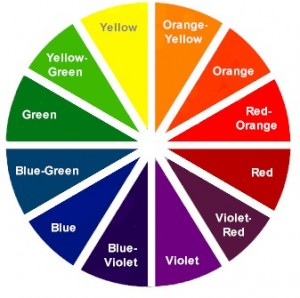OK, fellow Optiboarders, we know that blue light coatings are really blue subtracting mirrors on the front surface causing residual brown-ish light transmission. (And, nota bene, the degree of darkness of the brownish transmitted light should be equivalent to the degree of blue reflectance--that is, not a whole heck of a lot. But such is the biggest scam to hit optical in my career.)
But get this: I have from my lab a mirror sample collection: one half has the mirror coat on a gray base, and you can see the net effect on the gray base. In a nutshell, gold and silver don't really change the perceived hues, but the red/orange causes a distinct blue shift (subtracts red) and the blue mirror subtracts blue and makes a more brown effect on the gray base (looks nice). I don't have a green mirror sample, but it was more neutral, too, IIRC.
What the real prize is, though, is that the sample collection has the same mirrors on a clear base (for whom I don't know) but it is pure mirror effect! So it can show:
a. that mirrors will darken the transmission a decent amount, alone. (Add that to people who want darkdarkdark.)
b. that mirrors will shift the color hue transmission. Hold one of those puppies up over a set of plano sunglasses and they'll get the real, live effect of what the mirror will do.
Case in point: Old DRK was fitting an acutal duck hunter with sunglasses...he chose for his patient a nice matte black, non-reflecting frame with gray polar lenses. Done? No, he showed what a brown lens would look like. On a beautiful fall Midwestern day the patient chose brown polar (well, that will look OK, I guess...seen it done before). "You probably don't want a mirror...scares off the ducks?" "No, I want a mirror--an orange mirror".
So he gets the orange mirror over a brown base lens. Guess what I noted, later, using my handy-dandy clear lens with orange mirror? It turns the perceived hue back to GRAY! I took a base lens that selectively passed a brown color and added a mirror that bounces the brown away. What a loser!
Does anyone know if there is a way out of this? I doubt it, because you can't just tint a polar lens whatever color you'd like. But say you could---what kind of tint would work? If it were a math equation:
BASE TINT X - Red/orange subtractor = Brown
Solve for "x".
BASE TINT X = Brown + Brown.
Answer = Superbrown?






 Reply With Quote
Reply With Quote


Bookmarks